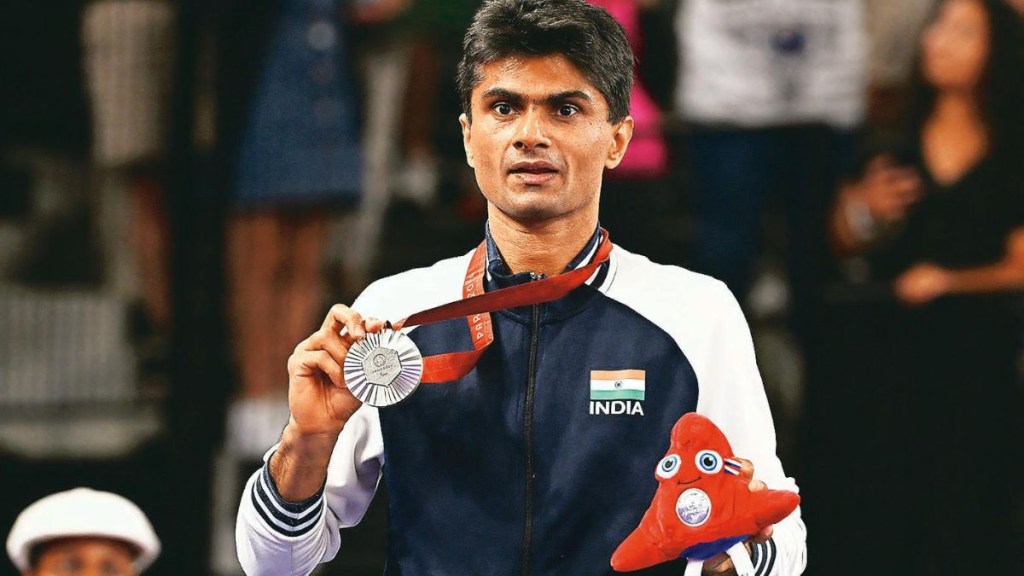Even before Day 8 of the Paris Paralympics was over, India’s 84-strong contingent had already posted its best-ever medal haul at a single edition, with a tally of 24, 5 of which were golds (till 6.30 pm,Thursday). And performers such as Sumit Antil, Avani Lekhara, Suhas Yathiraj and Nishad Kumar proved they are no one-season wonders.
Expect the mandatory congratulatory messages from brands when the contingent returns. But will big-ticket endorsement deals follow after the commotion dies down? How can brands build sustainable partnerships with para-athletes without smacking of opportunism?
This year, brands such as Indian Oil Corporation, Krafton India, Shrachi Group, Forza Medi India backed the para-athletes bound for Paris. The support led to a high-water mark of visibility but questions about continued brand and sponsor support remain.
Outside the field, Nishad Kumar and Sumit Antil are Adidas athletes; Nishad also has an ongoing association with Bisleri; Sumit was part of a Country Delight campaign a month or two back. About three years ago, Avani Lekhara was named the brand ambassador of the Beti Bachao, Beti Padhao campaign by the Rajasthan government.
That said, bringing a para-athlete on board is only the first step. Bringing out her/his story powerfully to inspire others is the crucial next step towards building a stronger ecosystem. “Educating teams involved in developing the campaigns about the challenges and unique aspects of para-sports can ensure respectful messaging and avoid stereotyping,” says Amol Patil, adjunct faculty, sports management, K J Somaiya Institute of Management. “Collaborating with para-athletes in campaign development ensures their voices are heard and their experiences are accurately represented.”
Brands must ensure that the collaborations are based on shared values, say experts. A good place to start will be to bring out the trials and tribulations of the athlete and relate it with the highs and lows of the brand’s journey. Campaigns that focus on the athlete’s personal journey, rather than just their achievements alone resonate better with audiences and allow consumers to engage with the athletes’ experiences, says Neerav Tomar, founder & managing director, IOS Sports & Entertainment, which is working with athletes Nishad Kumar, Sumit Antil and Nitish Kumar. “It’s important for brands to align their values with those of the para-athletes so that they go beyond lip service and are reflected in the company’s commitment to social change,” he adds.
There’s a lot to learn from the experiences of brands such as IKEA and Toyota that have worked with para-performers with a “strategic” — as opposed to “tactical” — approach. Neeraj Bassi, chief growth officer at Cheil X, cites IKEA’s ThisAbles project. The brand conducted a hackathon to understand their needs, resulting in 13 new products that addressed various accessibility challenges. “It went beyond lip service by introducing products designed to improve accessibility for differently abled individuals,” he says.
For its part, Toyota is the Worldwide Official Mobility Partner of the International Olympic Committee and the International Paralympic Committee, designing carriers that would ease the in-event transportation for para-athletes.
Experts say that it is important for brands to be present in this space for a length of time and associate with the broader community to deepen connection and represent the community positively. “Para-athletes bring a wealth of motivation, positivity, and clear vision,” says Kunal Khandelwal, group head, outreach, SoCheers. “Brands must ensure relevance and authenticity. A well-thought-out approach is necessary, as partnerships cannot be short-lived — that just looks opportunistic. Instead, they should focus on long-term associations right from the outset.”
The operative phrase here is long term. That is the only way to demonstrate authenticity. Experts say such long-term partnerships will also help support the country’s larger paralympic mission and ensure that the athletes’ stories are told in a way that they have a contagion effect. Tomar says, “Building long-term relationships with para-athletes helps brands in building trust. It tells the onlooker that the brand is genuinely interested in supporting the athlete’s journey, and is not just leveraging their success for a brief marketing boost.”

